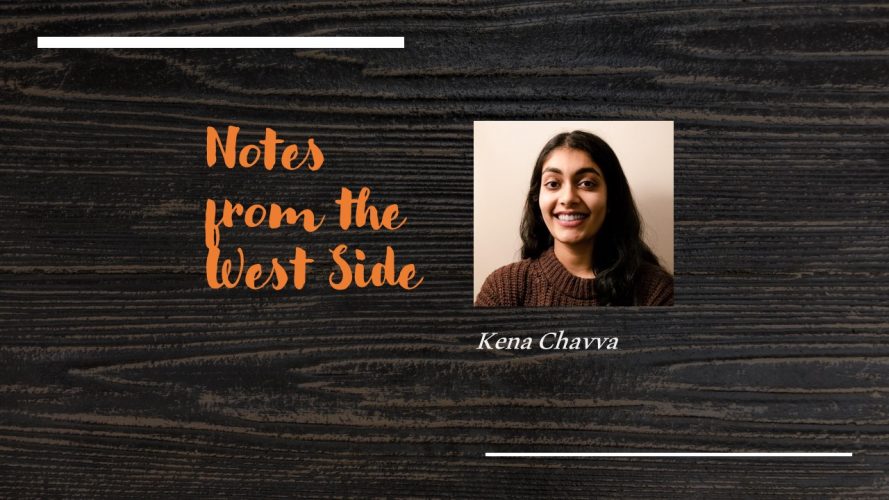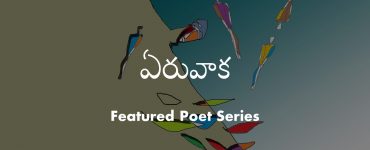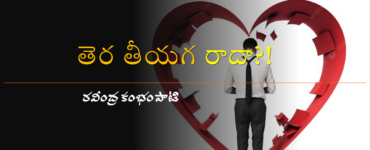This past May was the last month that I lived in New York, at least for the next two years; no longer will I truly be writing this column from the “West Side”. It’s neither my place nor my wish to expound upon the virtues and vices of that American city, to engage in conversations of whether or not it’s a merely playground for the rich or the best city for living artists to work. What I will say is that New York, and perhaps more accurately, living as a full-time university student in New York, creates an environment conducive to spontaneity, to peeking your head around the block and seeing what strange and wonderful gathering might be happening just over there. Suburban spaces (a topic on which I feel much more qualified to make a sweeping statement, having exclusively lived in the suburbs for the first eighteen years of my life), with less community, cannot compare to the magic of the city in this regard.
Just like with Akwaeke Emezi’s book talk, which I attended in February 2022 and wrote about for the March issue of Saaranga, I stumbled into a ticket for an event at the Lincoln Center for Performing Arts titled “In Conversation: Ocean Vuong, Yanyi, and Solmaz Sharif” on May 4 at 7:30 PM, hosted in collaboration with Asian American Writers’ Workshop, primarily through luck. A friend of mine was in a class at Columbia University whose professor had reserved tickets for this event; at the last moment, a few students dropped out, and lo and behold, a ticket opened up for me. I arrived at the David Rubinstein Atrium, where the event was held, almost exactly at 7:30 PM, after going to three different incorrect addresses first. I bypassed a line that snaked around the block and slinked through a crowded interior merely by repeating the words “I’m with a Columbia University group” to everyone who stopped me, and assumed my place at the front of the atrium. That is another thing I will miss.
The event brought together these three poets—Vuong, Yanyi, and Sharif—to read from their work and join the audience and the moderator, Jafreen Uddin, Executive Director of Asian American Writers’ Workshop, for questions and a conversation. Vuong, the star poet of the evening, began first with a reading of his poem “Not Even This”. He was followed by Yanyi, who read ten shorter poems. Sharif completed the reading portion of the event with three of her poems: “Beauty”, “The Master’s House”, and “Social Skills Training”. All three authors had recently published poetry collections: Vuong’s was Time is a Mother, released in April 2022, Yanyi’s was Dream of a Divided Field, released in March 2022, and Sharif’s was Customs, also released in March 2022.
It felt strange to hear some of these poems—particularly those from Vuong and Sharif—at an institutionally literary event, with the weight of Lincoln Center and Asian American Writers’ Workshop propelling it into existence. Growing up, I had read early work by Vuong and Sharif in the corners of the Internet I frequented, where they were excerpted into fragments on Tumblr, Instagram, and Pinterest. They were the authors, alongside Rupi Kaur (now merely a butt of Instagram poetry jokes), Warsan Shire, and Nayyirah Waheed, who showed me that poetry could speak to young people and people of color in ways that Shakespeare and John Donne, the poets whom I read in school, didn’t quite yet. I realized with a jolt that I’d read “Social Skills Training” years ago when Sharif began reciting it that evening. The presence of Yanyi in these Internet corners, whose first collection, The Year of Blue Water, came out in 2019, followed my own lurking in such spaces. And yet, here they all were, brought together by Asian American Writers’ Workshop, an institution that had nurtured not only all of them (Sharif used to be the Managing Director at AAWW, Yanyi was the 2017-2018 AAWW Margins Fellow, and Vuong has done countless workshops with the organization) but also an earlier generation of Asian-American writers including Min Jin Lee, Jhumpa Lahiri, and Cathy Park Hong.
In the conversation portion of the event, Vuong navigated this balance between the institution and the radical with ease. He referenced Faulkner and Melville’s relationships to whiteness, Japanese aesthetic theory, and Édouard Glissant’s postcolonial theory by drawing the audience in and making us understand how these touchpoints informed his work. With the voice of an expert educator, he simultaneously made us feel more intelligent and stretched our thinking without ever talking down to us. Sharif cracked a few more jokes than did Vuong—in a deadpan voice, she assured us that her approach to poetry was to write “rodentially”, from the margins, with the powers-that-be always trying to make her more palatable. Yanyi, as the relative newcomer to the poetry scene, was the most lighthearted, and this was reflected in his poems, which the shortest and more impressionistic.
Vuong’s final address to the audience—“You do not need a degree to be a poet”—seemed rooted in all of the three authors’ histories as children of immigrants, if not immigrants themselves, and their relationships to languages other than English. I was reminded of the power of Telugu in this respect: internationally, Telugu is still considered a “minor” or small language, but that means that its literature continues to be for and by its people.
*









Add comment